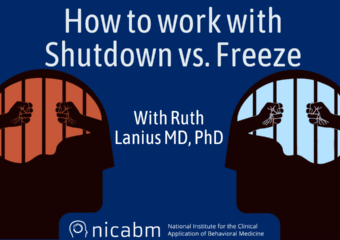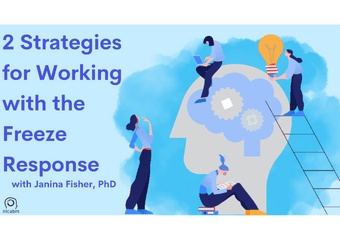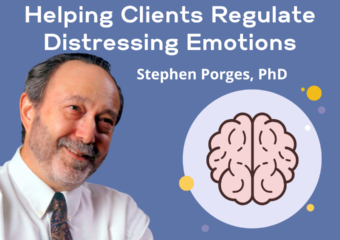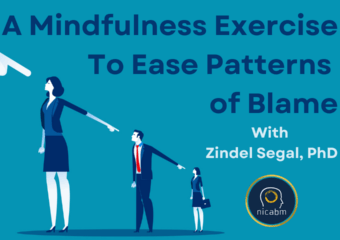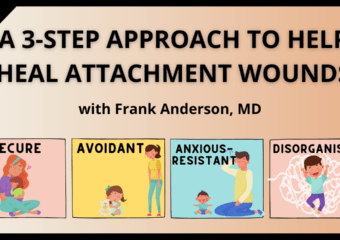In the face of a traumatic experience, some clients become unable to move. This can sometimes indicate that a client is experiencing either a freeze response or a shutdown response to trauma. And according to Ruth Lanius, MD, PhD, there are key neurological differences that can help us distinguish between the two . . . […]
2 Strategies for Working with the Freeze Response
As therapists, we may sometimes feel unsure about what to do when a client enters a freeze response and loses their ability to speak. What’s more, it can be difficult to gauge a client’s sense of safety when they’re unable to talk to us. So in the video below, Janina Fisher, PhD walks us through […]
Stephen Porges, PhD on Helping Clients Regulate Distressing Emotions
For many clients, stress can feel like a natural byproduct of having a family, holding down a job, pursuing an advanced degree, or keeping up with the hectic pace of life in general. The problem is, when stress becomes chronic it can impact their brain, body, and virtually every aspect of their life. So how […]
A Mindfulness Exercise To Ease Patterns of Blame – with Zindel Segal, PhD
For some clients, their go-to response to hurt or disappointment may be to find something (or more often someone) to blame it on. And when that blame is accompanied by anger and harsh criticism, it can wreak havoc on their relationships. So how can we help clients begin to manage distressing emotions, instead of jumping […]
A 3-Step Approach to Help Heal Attachment Wounds – with Frank Anderson, MD
As practitioners, we know how important the role of attachment can be in a client’s healing process. That’s why addressing early attachment wounds is often a key part of trauma therapy. So in the video below, Frank Anderson, MD will walk us through a 3-step process to help clients let go of pain they’ve carried […]
